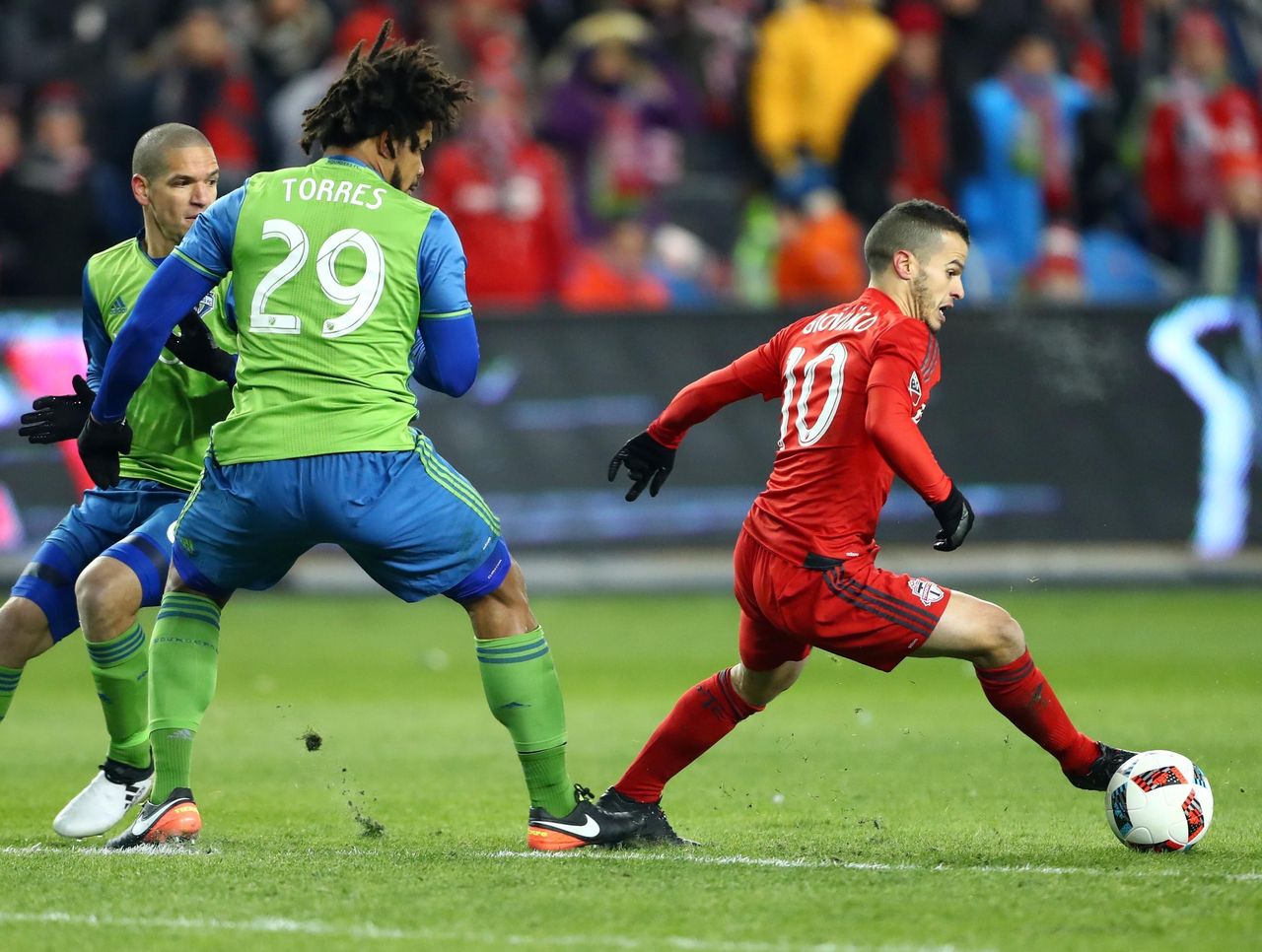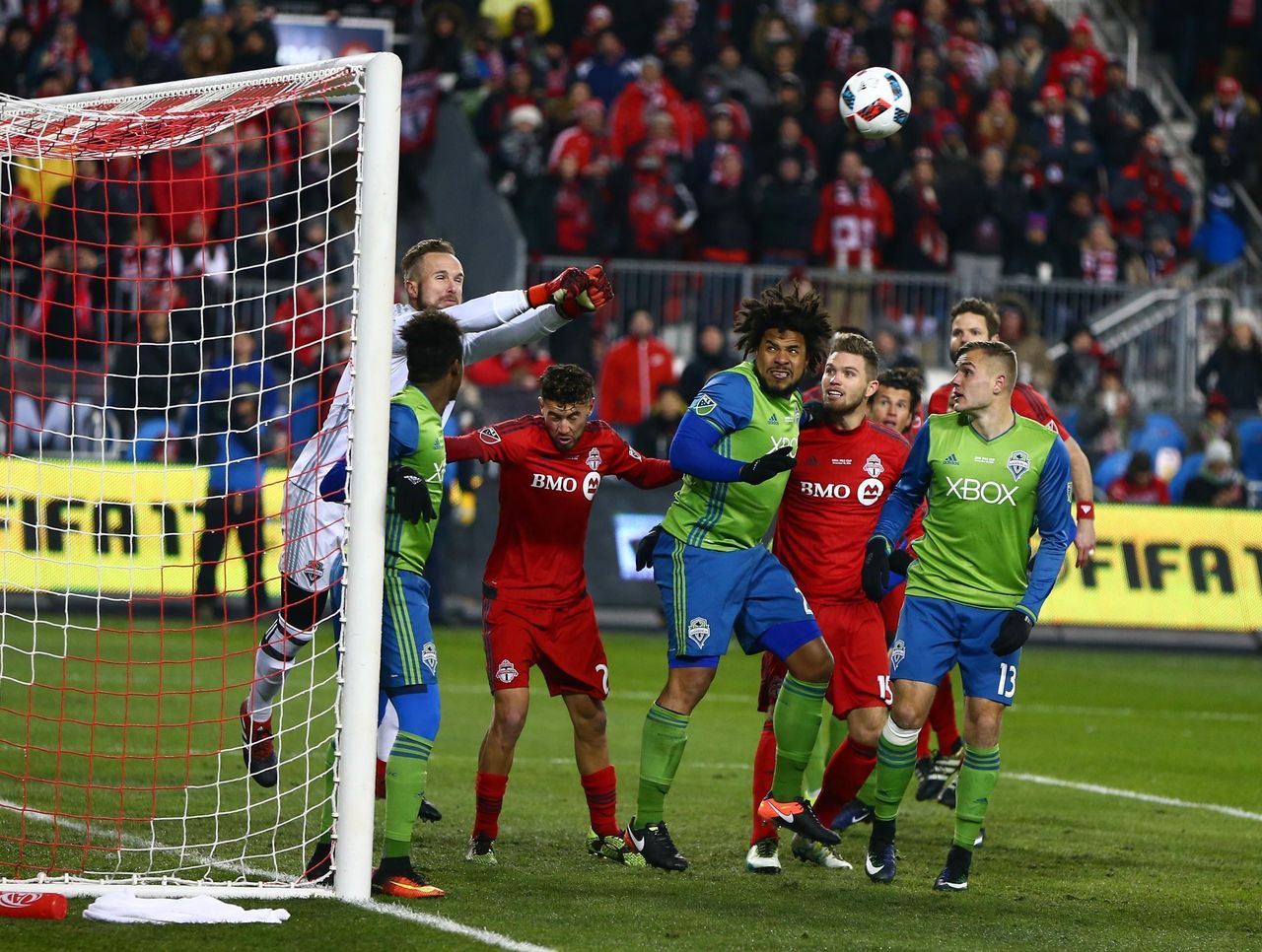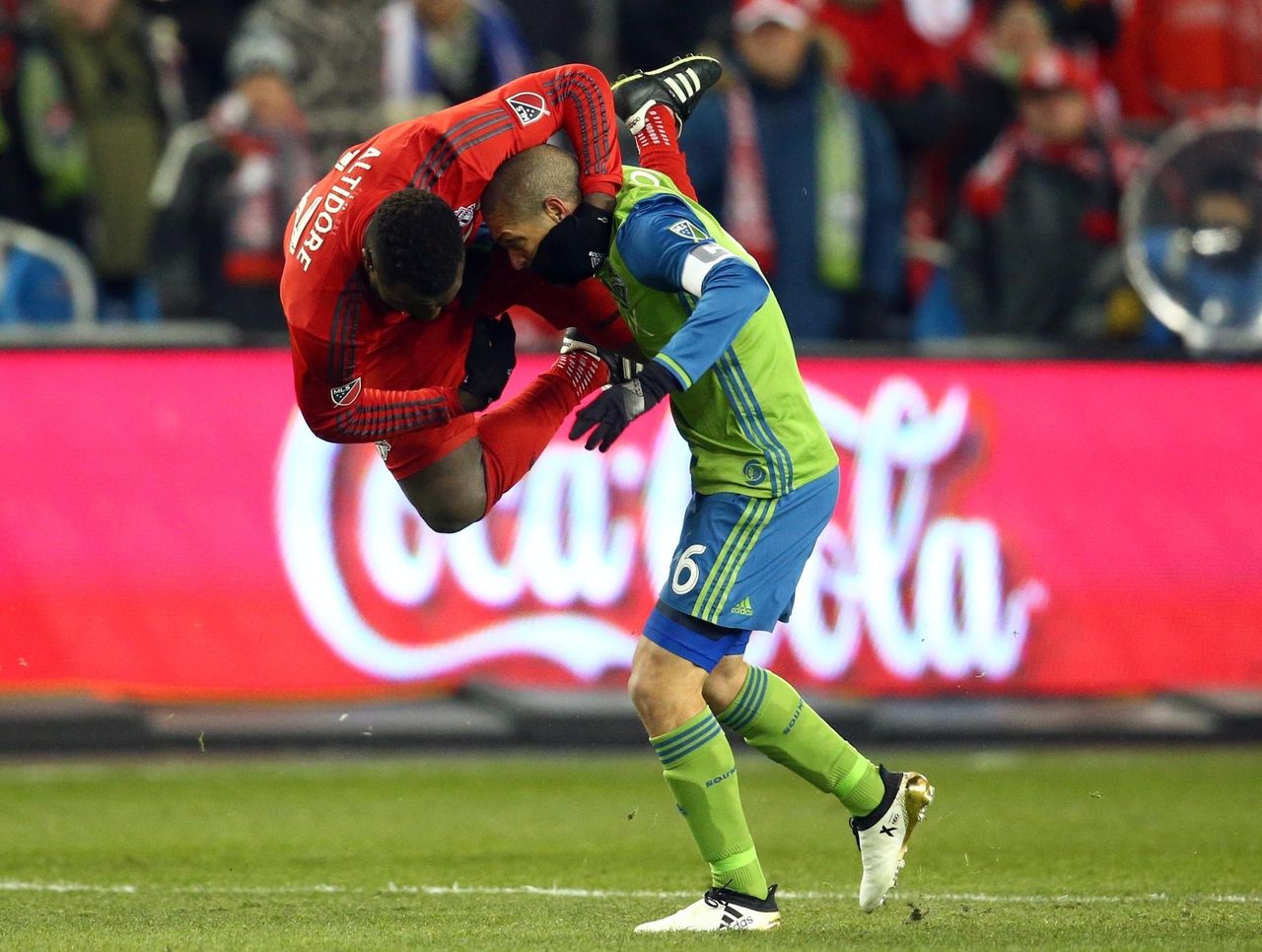3 reasons why Seattle won the MLS Cup
The Seattle Sounders won the 2016 MLS Cup without putting a shot on target in 120 minutes of play.
And they're no less deserving of it.
Saturday's final was no classic. The Sounders and host Toronto FC played a cagey, rough, and ugly game that featured foul upon foul. It didn't produce the kind of drama or quality BMO Field witnessed two weeks earlier in TFC's conquest over rival Montreal Impact.
Instead, the visitor ground out the first 90 minutes and survived another 30 before reaching and winning on penalty kicks. To get there, it took a lot of defending and even more composure.
Related - Watch: Seattle's Torres hammers home penalty to secure MLS Cup
In many ways, Saturday's performance was a microcosm of Seattle's season on the whole. It looked dead and buried in the basement of the Western Conference before Brian Schmetzer replaced longtime head coach Sigi Schmid midway through the campaign, and it again took a hit when talisman Clint Dempsey withdrew from the squad with an irregular heartbeat.
But the Sounders came back, made the playoffs for an eighth consecutive year, and edged TFC to win the club's first title.
Here are three reasons why Seattle made history:
Stifling TFC's dangerous attack

Seattle clearly enjoyed the benefits of a choppy evening. Referee Alan Kelly assessed 40 fouls in total and stopped play several times for injuries and other game-related delays. The whistle often stopped TFC's usual high tempo and gave the Sounders a chance to breathe and recoup.
Seattle also frustrated the home side on the defensive end. The box score shows Toronto led in almost every important category - shots attempted, shots on target, possession, crosses, and passes - but many of its opportunities lacked punch.

(Courtesy: MLSsoccer.com)
That's because Schmetzer's lot hassled and harried TFC's top performers. Jozy Altidore barely beat marker Chad Marshall, and an off-tempo Sebastian Giovinco failed to get the better of hulking defender Roman Torres. By the end of regular time, Greg Vanney's team averaged 0.7 in expected goals. Though it could cry injustice, TFC really didn't have clear looks at goal.
Marshall and Torres proved difficult to break down. Altidore turned Marshall once in the first half, and that was it. For the rest of the match, the 2014 MLS Defender of the Year kept the American striker at arm's length and ensured he couldn't do anything of consequence with his back to the goal.
Torres relied on brute force. He didn't give Giovinco an inch of grass for free, and hoofed the ball away when in doubt. Torres' six interceptions was a game high, and if TFC had some kind of momentum, he threw his body in the way of it.
Torres even took a brick of a shot to the face in the first half, Giovinco lacing the ball from close distance against the Panamanian.
It was like that all game. The Reds, who came into this final after scoring a playoff-record 17 goals, were held off the scoresheet for good reason.
Frei's dramatic saves

It was the best stop in MLS Cup history.
Stefan Frei, the former Toronto FC goalkeeper, flung himself to scoop Altidore's header off the goal line in the 108th minute. That was one of seven saves made by the eventual MLS Cup MVP.
It drew to mind David Seaman's miraculous stop in the 2003 FA Cup semifinal against Sheffield United.
Related - Watch: Frei's absurd one-handed save sends MLS Cup to penalties
Some of his other stops were routine, but they all allowed Seattle the foundation to keep on going. His performance was all about safety - getting first to balls, preventing rebounds, and punching away headers.
To do it against a former club, three years to the day when he was traded away, just rubbed the salt into TFC's fresh wounds.
Frei didn't lead any major categories among MLS goalkeepers this season. But he didn't concede more than a single goal in nine of Seattle's past 11 matches - a major change in fortune after letting in two or three goals at a time earlier in the season.
Alonso's imposing midfield presence

The match was billed as a contest between two of the league's premier midfielders. And both Michael Bradley and Osvaldo Alonso lived up to their names, staying calm when chaos seemed to descend upon them.
Alonso may not have created as much as Bradley - who produced more touches (128) and more completed passes (81) than anyone else on the pitch - but he was undoubtedly the grittier and more important of the two.
The 31-year-old relieved pressure as he dribbled his way out of tight spots, and when he wasn't negotiating traffic, he stood his ground. No one else from the Sounders made more clearances (8) than Alonso, and no other player surpassed his six tackles. It was difficult to get past the Cuban-American.
His biggest impact came in transition. Never relenting on a loose ball, Alonso recovered possession quickly and pushed forward when space opened up.
And he did it all on a bum leg.
Alonso told ESPN FC's Jeff Carlisle he required eight injections - four before the game and another four at the interval.
"He was never not going to play in this game," said Schmetzer.
If he had missed it, the story could've ended differently.